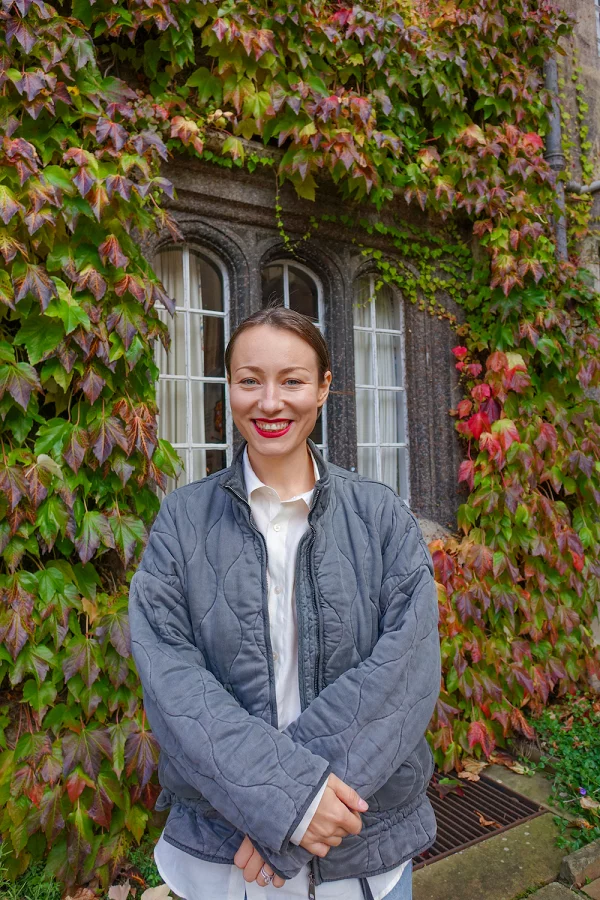Daria Koltsova
Daria Koltsova (b. 1987, Kharkiv, Ukraine) is a contemporary artist whose practice spans installation, performance, stained glass, and socially engaged art. Her work engages with memory, trauma, war, and the vulnerability of individuals in the face of historical violence. Since the early 2010s, Koltsova has emerged as a significant voice in Ukrainian conceptual art, particularly in response to Russia’s annexation of Crimea and the ongoing war in Ukraine.
Her artistic language, rooted in conceptualism, explores collective memory and social trauma while often incorporating fragile and symbolic materials such as glass, fabric, and earth. Koltsova creates spaces of reflection, mourning, and care, inviting viewers into intimate encounters with loss, resilience, and displacement.
Her work has been presented internationally at the Suprainfinit Gallery (Bucharest), the Ludwig Museum (Cologne), the Albertina Museum (Vienna), and Mystetskyi Arsenal (Kyiv), among others.

WITNESSES
2024
Stained glass, metal
Stained glass, metal
By addressing the relationship between memory, the built environment and imagined space, the work continues the artist’s practice of highlighting the fragility of landscapes and objects in their coexistence with the human one.
Witnesses sculptures inhabit the space in a synecdoche of a lost land, creating a dried, burnt landscape to wander through. The incompleteness of the landscape creates a powerful poetics of memory, able to capture the grieving of the Earth through these subtle fragmentations. The black glass is deprived of its main function, namely light shining through; this opaque state unravels the trauma and displays it under the shape of these defined sculptures. By shattering the light, the sunflowers turn into mourning sentinels.
Outraged about the Ukrainian burnt sunflower fields in the current Russian invasion, the artist’s desire to commemorate nature turned into spiky and eerie sunflowers, like shadows of multi-generational traumas, histories of subjugation that brutally reverberate into the present.